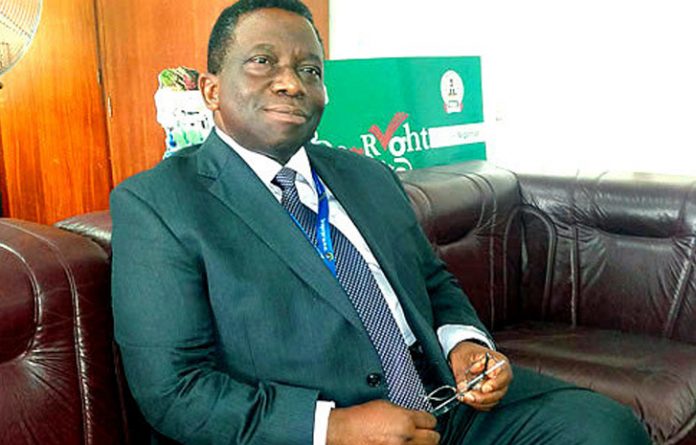The Minister of Health, Professor Isaac Adewole on Thursday said Lassa Fever is over in Nigeria.
According to him, following epidemiological review by the Nigeria Centre for Disease Control, NCDC, and the World Health Organisation, WHO, the emergency phase of the Lassa fever outbreak is over.
On the issue of Ebola, the Minister said Port Health Services Unit has been placed on red-alert and will heighten screening measures at ports of entry. Letters of alert have also been sent to all States to enhance surveillance activities and an advisory note for the general public.
Adewole made this known at a press conference in Abuja saying, the end of the outbreak does not mean we will no longer record cases of Lassa fever. Given the epidemiology of the disease in Nigeria, there will still be reports of cases. However, we are now better prepared and have stronger response architecture.
The National Lassa fever working group at NCDC will remain active, ensuring Lassa fever cases are detected early, treated and an increased level of awareness across the country, he said.
He further stated that, “You may recall that since the beginning of January 2018, we have experienced the largest Lassa Fever outbreak in history. As at the 7th of May 2018, we had 423 confirmed cases and 106 deaths were recorded.
“The Lassa Fever outbreak provided an opportunity for us to review and strengthen our public health system across disease preparedness, detection, surveillance and response.”
The Minister added that “The Federal Ministry of Health through NCDC activated an Emergency Operation Centres that worked extensively to coordinate outbreak response activities. We also supported the establishment of EOCs in the high burden States of Ondo, Edo and Ebonyi.
“Rapid Response Teams were deployed to States with cases where we supported enhanced surveillance activities, case investigation, management of cases and other response activities.
“During this outbreak, we supported the full operationalisation of the Virology Centre at the Federal Teaching Hospital Abakaliki and the development of its laboratory as a testing site. We have now grown from two laboratories in January 2017, to four laboratories in January 2018 with the capacity to test for Lassa fever.”
He explained that, the Federal Ministry of Health also supported further development of infrastructure at the three main treatment centres- Irrua Specialist Teaching Hospital, Federal Medical Centre Owo and Federal Teaching Hospital Abakaliki.
“One of our medium-term strategies which has already begun includes a nationwide training of healthcare workers on Lassa fever case management and diagnosis by NCDC and Irrua Specialist Teaching Hospital. The first phase, which covered all states in the South-West of Nigeria, ended in Akure on the 4th of May 2018. We are going to the South East from the 14th of May 2018.
“In addition, we are working very closely with WHO to strengthen research activities on Lassa fever including new diagnostic approaches and improved treatment options.
The Minister thanked all its partners including WHO, UNICEF, US Centers for Disease Control, Alliance for Medical Action (ALIMA), Robert Koch Institute and Bernard Nocht Institute in Germany, UK Public Health Rapid Support Team, Medecins Sans Frontiers, and other organisations for their support.
“We also thank all health workers for their hard work and dedication during this outbreak. Once again, our heart goes to the families of health care givers that paid the supreme price while attending to patients, he added.
On the issue of Ebola, the Minister said they are aware of the outbreak of Ebola in Democratic Republic of Congo following an announcement by the country on the 8th of May 2018.
According to him, the Nigeria Centre for Disease Control is currently coordinating a national working group that is assessing and managing the risk to Nigeria. “We are in close communication with our partners including the World Health Organisation, who are in Congo to monitor and respond to the situation.”
He said that, over the last few years, we have strengthened our health security infrastructure to effectively prevent, detect and respond to infectious diseases including Ebola. The Federal Ministry of Health remains committed to ensuring the health and safety of all Nigerians.




